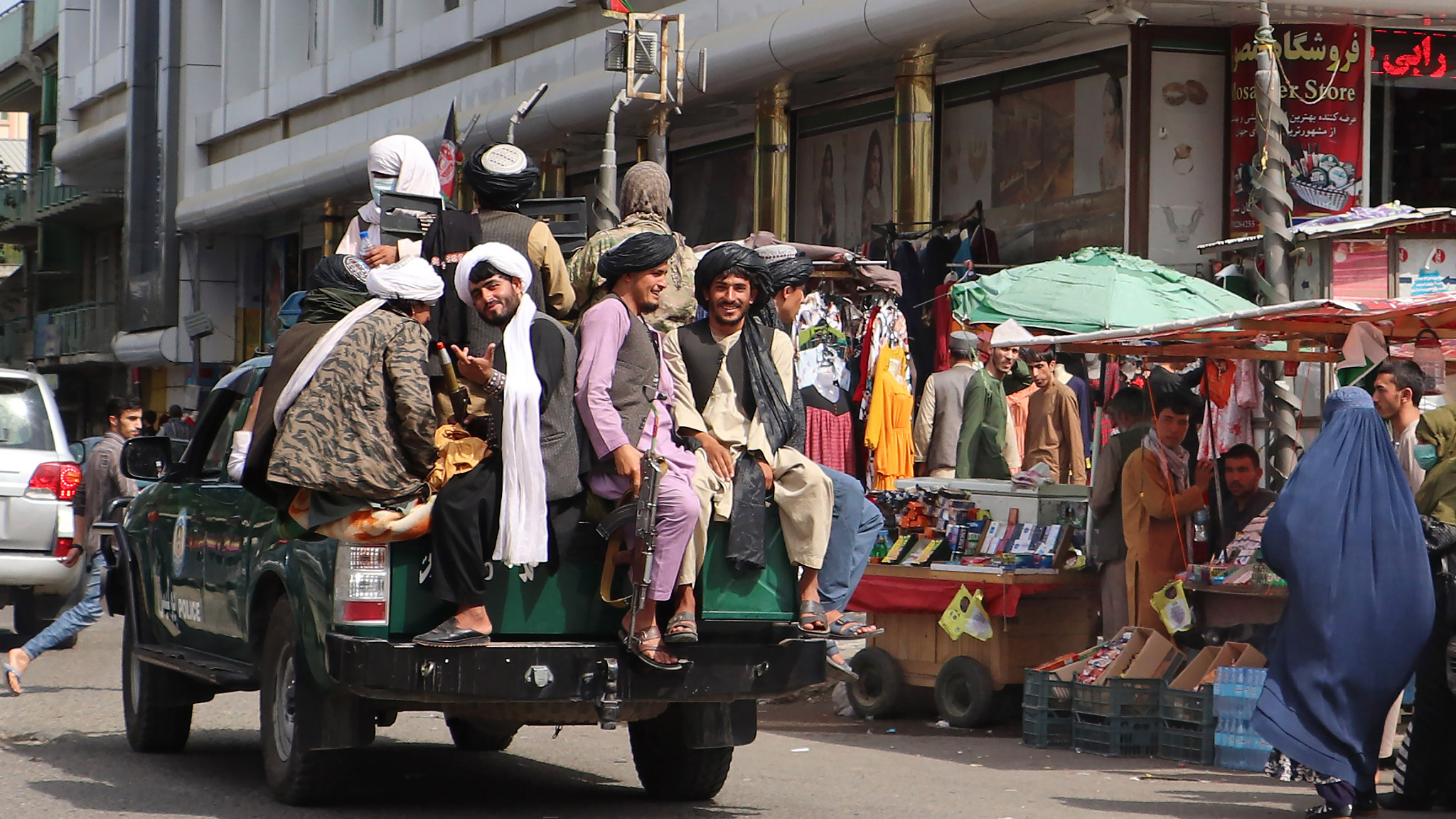
Editor's note: On the 7th day of Taliban rule in Afghanistan, Mohammad Amini and his brother went to the streets of Kabul to speak with residents and Taliban members. The following first-person account is what they witnessed that day.
On the seventh day of Taliban rule in Kabul, the face of the city has gradually changed, and residents are trying to get accustomed to the presence of the Taliban on the city's roads.
In the city center, the situation has returned to almost normal, but police and traffic police in uniforms were missing in these areas. Also absent were soldiers guarding the government offices. None of them were seen today; even security cameras were removed from parts of the city. Only Taliban members were seen patrolling with weapons and tools they had returned with from the battlefield.
Since I haven't left my home for the last seven days and all activities at the company I had previously worked for were suspended, I was eager to tell the world facts, concerns and lives of the people of Kabul in such circumstances. So, my brother Mohammad Aman and I went to the city to report on the current situation.
In Qala-e-Naw, where thousands of people thronged the area on a typical day, only a few shopkeepers and workers can be seen today. Few people came out of the house to buy supplies they needed, and there was no bustle like in the previous weeks.
We moved from the crossroad of Qala-e-Naw to the intersection of Pol-e-Khoshk and Tang-e-Til station. Afghanistan International Bank at the crossroads of Pol-e -Khoshk was closed, and ATM services were shut down. In Tang-e-Til, where the largest commercial market in western Kabul is located, all shops and supermarkets were closed. Only one unarmed market owner was present. He did not know when the market would reopen.
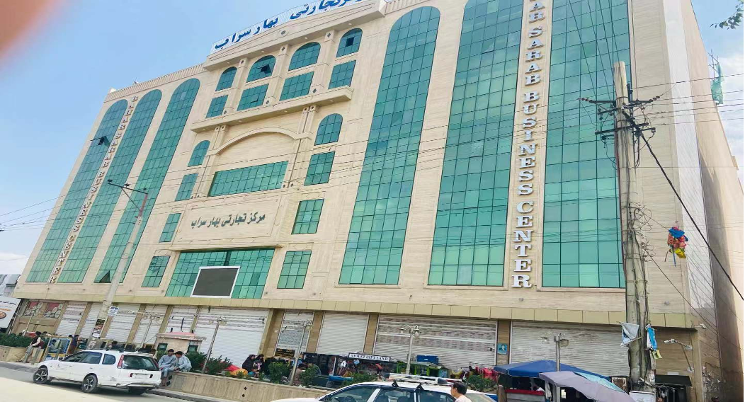
Tang-e-Til Station in Kabul. /CMG
Tang-e-Til Station in Kabul. /CMG
We took a car from Tang-e-Til station to the Pol-e-Sokhta station. Everyone in the car was talking about the arrival of the Taliban, that Afghan women and girls should not stay at home again but go to school and university. There was already a large number of security soldiers at Onchi Station. But today, there were only three Taliban fighters with long hair and local clothes and a white fielder-type vehicle. We got out of the car.
This was the first time we interviewed a Taliban fighter. He introduced himself as Abdul Wahed, a resident of Maidan Wardak province who came to Kabul after the Taliban arrived.
"It has been six days since we arrived in Kabul, and now it is calm. There are no security reports in the Hazara area… Thank goodness that all the people of Hazara are doing well, and there is no problem here," he said.
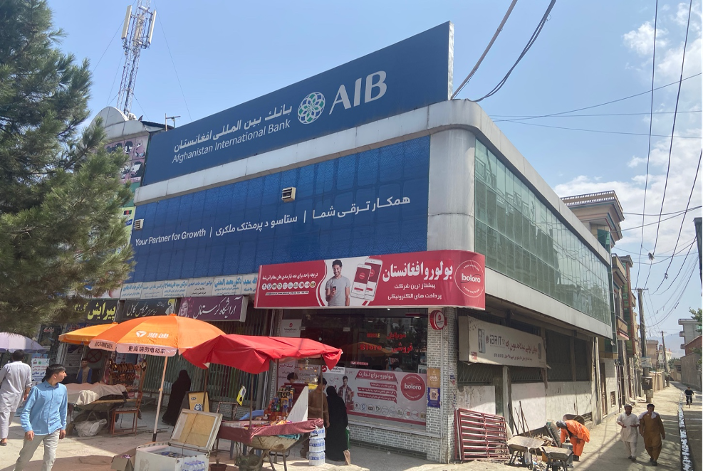
Pol-e-Sokhta Station in 13th District of Kabul City. /CMG
Pol-e-Sokhta Station in 13th District of Kabul City. /CMG
From there, we went to the Shahid Mazari Square, where the largest military training center of the Afghan army was located, and thousands of Afghan teenagers used to have military vocational training – It was called the Afghan Military School.
A military tank was standing at the school entrance, and a few steps away, a large number of Taliban members were gathered and talking. We talked to them about the situation in the city, and contrary to what has been reported – at least for now – they were gentle and welcomed us with open foreheads. Everyone was willing to talk to us and was happy that they are walking in their hometown again after years of war and visiting their families.
Qumandan Feroz is the pseudonym of a Taliban member who has fought for the Taliban for almost half his life. He said that all Kabulis are confident that their lives, property and honor are safe and that the security situation will improve in the not-too-distant future.
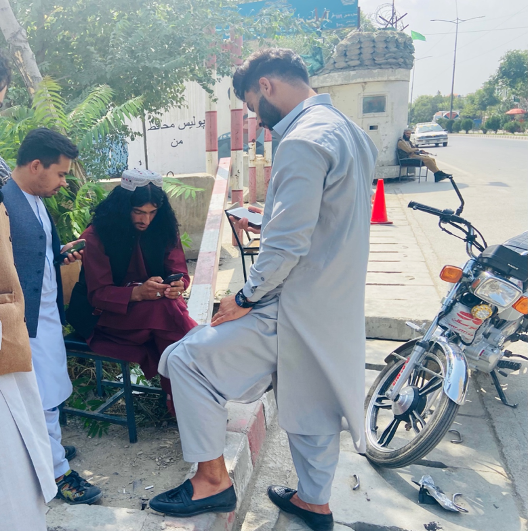
Qumandan Feroz, a Taliban fighter. /CMG
Qumandan Feroz, a Taliban fighter. /CMG
Alamuddin is another Taliban fighter who was born in Paghman district of Kabul province. "I am happy to be with my family; we have been away from Kabul for several years. On the other hand, I am glad that our opposition accepted us and entered Kabul without a fight," he said.
Zia-ul-Haq, who joined the Taliban in Jawzjan province and has been fighting against the Afghan government and security forces for nearly 19 years, said he was "very happy" that the war was over and that he could now stop living in fear.
"We are tired of war, no one likes war... We had to fight against the occupation. Now all the people of Afghanistan must live freely and remove all fears from their hearts," he said.
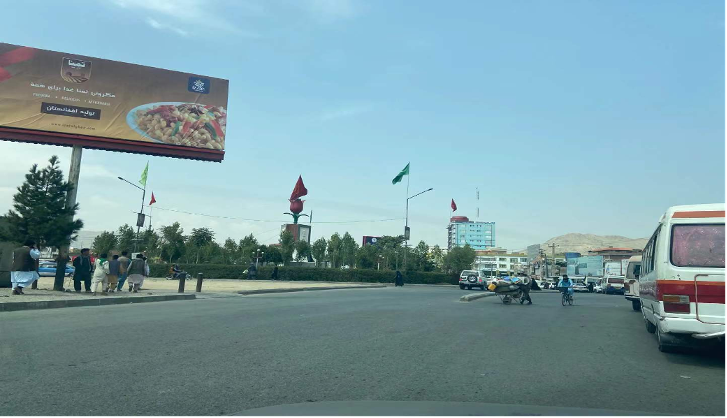
Shahid Mazari Square in Kabul. /CMG
Shahid Mazari Square in Kabul. /CMG
Before heading home, we came to the 13th police precinct in a bid to speak to some Taliban officials. The buildings have no security cameras. There are many Taliban fighters at the entrance, all equipped with weapons and combat equipment. With a bit of apprehension, we got permission to enter the command center. Because the faces there seem new to all the people of Kabul, it is also completely unusual to us.
The walkway that leads to the office of the security official is full of Taliban members, some of whom came to Kabul on the first day of the capital's takeover, and some have just joined from other provinces. At the entrance of the security officer's office, a person who is apparently the secretary of the security officer asked to see our ID cards and proof that we are journalists.
It was then they opened the door. Several other people came out of the commander's room and took us to another room. They asked us a lot of questions and told my brother to turn on the camera. He did so and showed them the recorded videos. Then, laughing out loud, they said we are doing wrong by covering the news. They had violent faces and shouted in Pashto: "Assad, get these crazy people out of here."
We were detained for about an hour and released after questioning. The Taliban confiscated my camera and mic, which I borrowed from one of our neighbors. They also deleted some of the pictures we took with phones.
It was the first time I met the Taliban officials, and we even interviewed them on an empty stomach. When we got home, we were alive.
Kabul residents are still worried about the Taliban. However, they are happy that there is no war and hope for a better tomorrow. But, unfortunately, they do not know when that day will come.
(Cover photo: Taliban fighters patrol in the streets of a neighborhood in Kabul, Afghanistan, August 22, 2021. /CFP)

